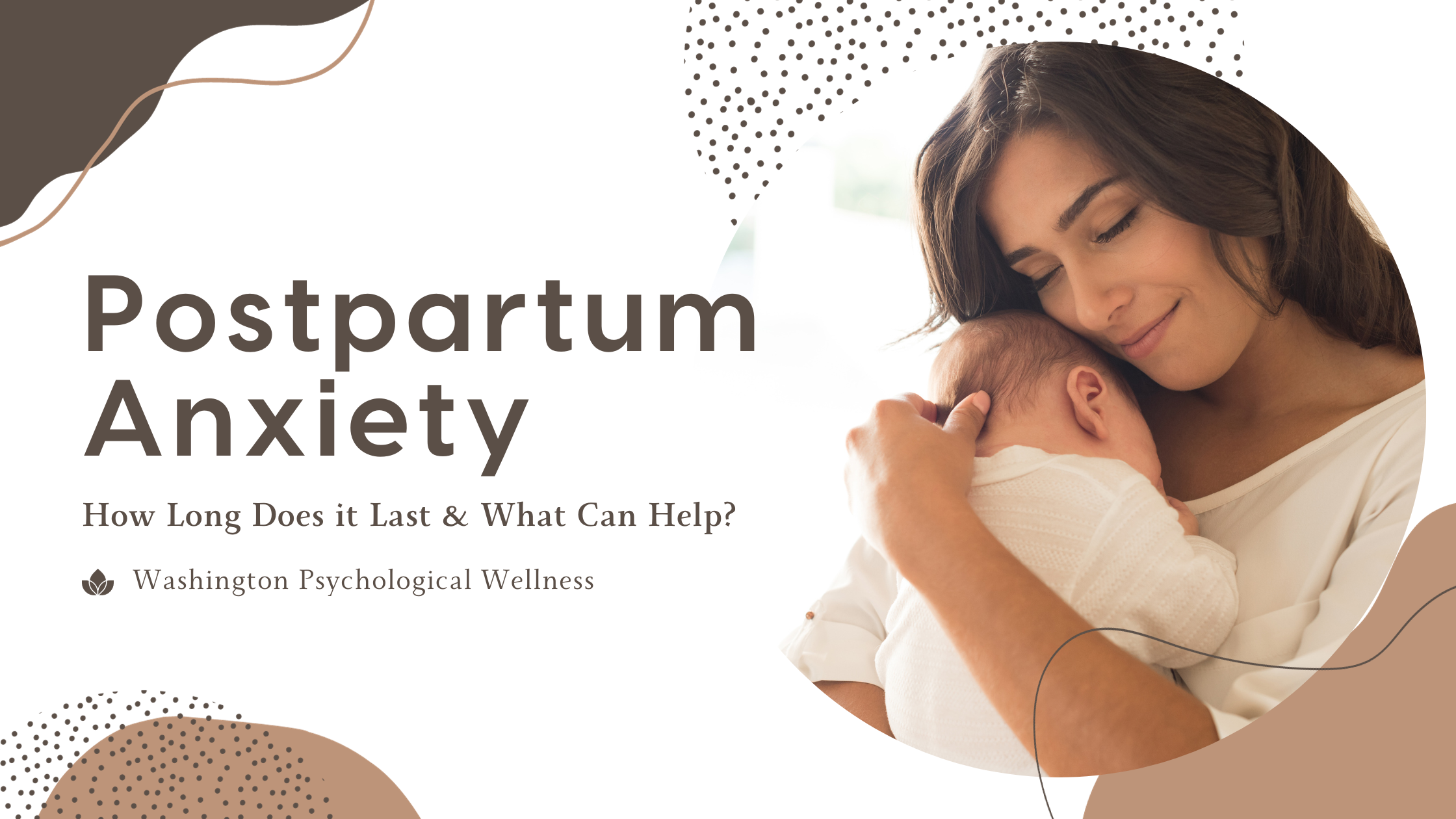
How Long Does Postpartum Anxiety Last, and What Can You Do to Feel Better?
Bringing a new life into the world is an extraordinary and transformative experience. However, it can also bring about various emotional challenges, including postpartum anxiety. While postpartum depression has received more attention in recent years, postpartum anxiety is a condition that affects many new mothers. In this blog, we’ll explore the duration of postpartum anxiety and provide strategies to help you feel better.
Understanding Postpartum Anxiety
Postpartum anxiety is characterized by excessive worry, fear, and nervousness in the weeks and months following childbirth. It can manifest in various ways, such as generalized anxiety, panic attacks, obsessive-compulsive behaviors, and even specific phobias related to your baby’s well-being.
Duration of Postpartum Anxiety
The duration of postpartum anxiety varies from person to person. Some women may experience it for a few weeks, while others may struggle with it for several months. In more severe cases, it can persist for a year or longer if left untreated. It’s essential to recognize that postpartum anxiety can emerge at any point during the first year after childbirth. It might be present from the very beginning or appear months later, often overlapping with postpartum depression or other mood disorders.
Several factors can influence the duration and severity of postpartum anxiety:
Individual Variation:
Each person’s experience is unique, and some women naturally have a predisposition to anxiety.
Support System:
A strong support system can significantly impact the recovery process. Social support from partners, family, and friends can be instrumental.
Treatment:
Receiving professional help, such as therapy or medication, can hasten recovery and reduce the duration.
Self-Care Practices:
Engaging in self-care, including relaxation techniques, exercise, and healthy eating, can contribute to feeling better faster.
Recovery is possible, and several strategies can help you on your journey:
Seek Professional Help:
Consult a mental health professional specializing in perinatal mental health. Therapy, such as cognitive-behavioral therapy (CBT), can be particularly effective in treating postpartum anxiety.
Support System:
A strong support system can significantly impact the recovery process. Social support from partners, family, and friends can be instrumental.
Medication:
In some cases, medication prescribed by a healthcare provider may be necessary. Medication can help regulate brain chemistry and reduce anxiety symptoms.
Self-Care:
Prioritize self-care. Make time for activities you enjoy, practice relaxation techniques, and ensure you are getting enough rest.
Support Network:
Don’t be afraid to lean on your support network. Share your feelings and concerns with your partner, family, and friends. They can provide emotional support and help with practical aspects of baby care.
Join Support Groups:
Participating in support groups or online communities for new mothers can be beneficial. It allows you to connect with others who are going through similar experiences and share coping strategies.
Mindfulness and Breathing Exercises:
Incorporate mindfulness and deep breathing exercises into your daily routine to help manage anxiety in the moment.
Healthy Lifestyle:
A balanced diet and regular exercise can positively impact your mental well-being. Avoid excessive caffeine and alcohol, as they can exacerbate anxiety.
Prioritize Sleep:
Sleep deprivation can worsen anxiety symptoms. Establish a sleep schedule that works for you and take naps when possible.
Postpartum anxiety is a common but often overlooked condition that can affect new mothers. Understanding that it can vary in duration from person to person is essential, and it’s crucial to seek help and support if you’re struggling. With the right strategies, including professional treatment, self-care, and a strong support network, you can overcome postpartum anxiety and start to enjoy the precious moments of motherhood without overwhelming fear and worry. Remember, you are not alone; help is available to guide you through this challenging time.
